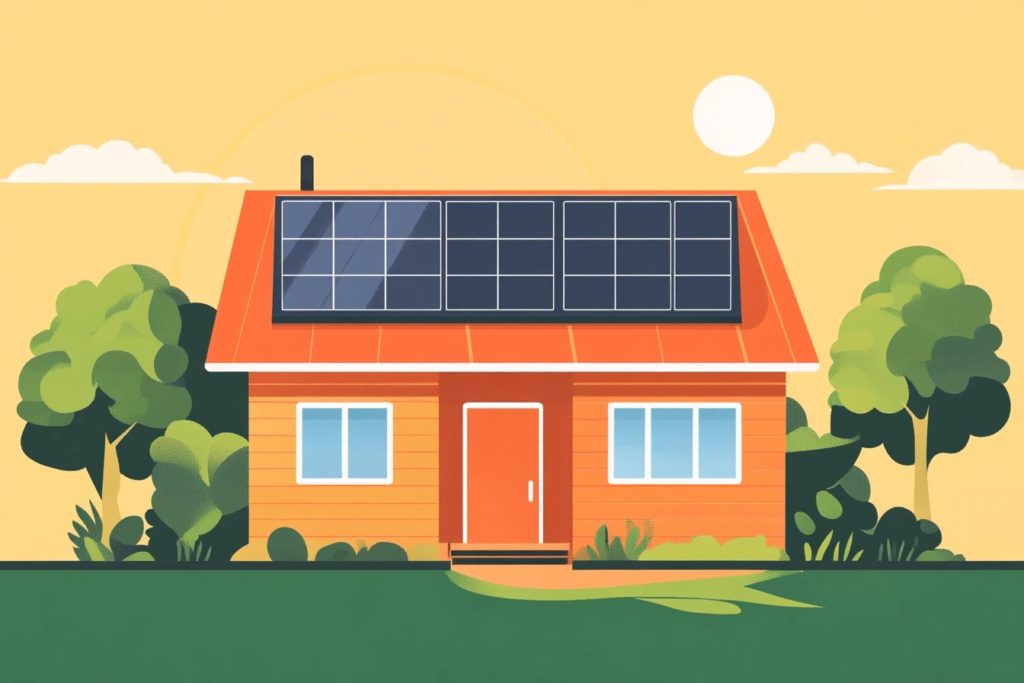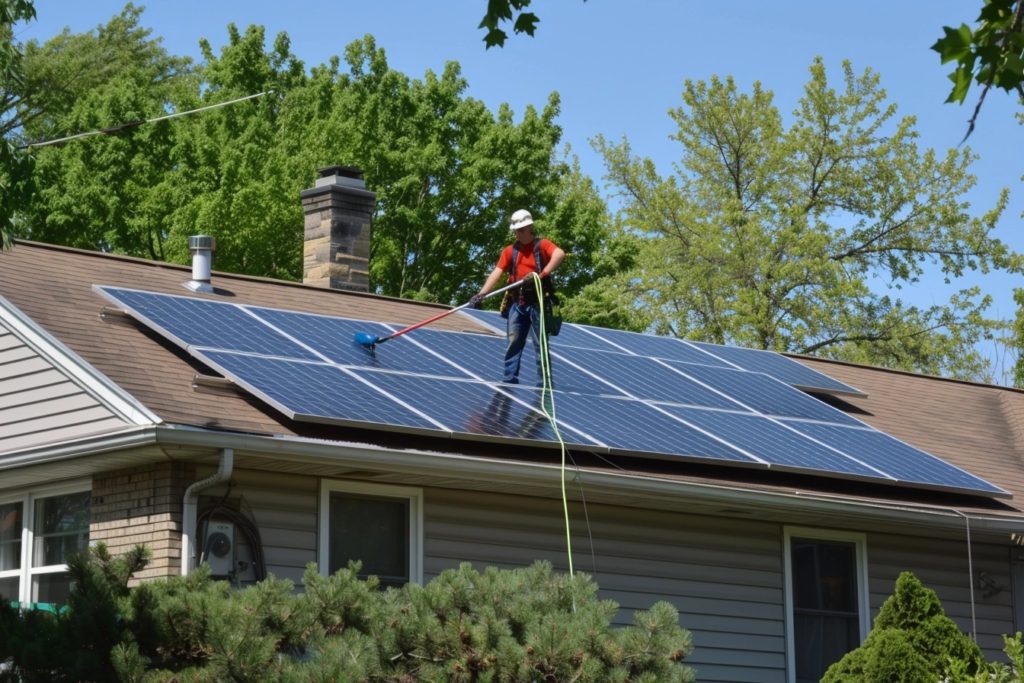If you’re looking to install solar panels for your home, you may have some questions about the role of the solar inverter. What is a solar inverter and how does it work? On a basic level, a solar inverter is a computer that tells your solar system how to convert the electricity generated by your solar panels into power for your house. It’s a crucial component of any residential solar installation, so let’s dig a bit deeper into the role of the solar inverter.
The Roles of a Solar Inverter
Your solar panels produce electricity in the form of direct current (DC). However, the electrical system inside your home uses electricity in the form of alternating current (AC). Therefore, it’s necessary to transform the DC power into AC electricity that your home can use. That’s where the solar inverter comes in. But that’s just one of the tasks completed by a solar inverter.
The other primary function of a solar inverter is to provide an internet connection for your solar system. This enables a homeowner (and their solar provider) to view detailed information about the current status of the solar panels. This allows you to keep a close eye on the energy produced by your solar panels in real-time, giving you an in-depth look at how much money you’re saving compared to using power from a traditional utility company.
The solar inverter is also responsible for alerting you to any problems within your solar system. If your panels aren’t generating the expected amount of energy, information produced by the solar inverter can help your solar provider troubleshoot the issues and get your system back up to full capacity.
How does a solar inverter work?
Types of Solar Inverters
The answer to this question largely relies on which type of inverter you use in your solar system. Most commonly, residential solar installations use a string inverter. Just like its name implies, a string inverter “strings” your solar panels together into up to three groups. Then, the string inverter converts the DC energy from your panels into AC electricity for your home.
The second type of solar inverter is usually called either a power optimizer or an optimized string inverter. With this option, the optimizer sends fixed-voltage DC electricity to the inverter before the inverter converts it into AC power. This produces usable electricity at a more efficient rate than the standard string inverter does, as the inverter itself doesn’t have to fix the voltage.
If your roof receives partial shading, an optimized string inverter can be a far superior option. With a traditional string inverter, shade on one panel can affect the output of the entire string. However, the optimizer in an optimized string inverter minimizes the effect of a partially shaded solar system, allowing the other panels in the string to pick up the slack for the panel that’s stuck in the shade. Additionally, power optimizers allow homeowners to keep an eye on performance statistics for each individual panel rather than the string as a whole.
Microinverters are the other style of solar inverter. Rather than one centralized inverter, this option involves installing small microinverters on each individual solar panel. These inverters each convert DC electricity into AC energy straight from the source, increasing energy efficiency and optimizing each panel’s electrical output. Microinverters are the most effective of these three options, although they are also the most costly.
Finally, the hybrid inverter is a relatively recent invention that’s quickly gaining popularity. This is a great option for homeowners who store electricity in solar batteries, as they come with built-in battery inverters. Additionally, hybrid inverters can also include electric vehicle (EV) chargers. If you own a solar system and an electric car, a hybrid inverter can kill two birds with one stone, avoiding further expenses by combining solar inverters and EV chargers in one unit. Hybrid inverters are available in standard string inverter and power optimizer styles.
LGCY Power Can Help
Here at LGCY Power, our representatives are true experts when it comes to the different styles of solar inverters. They can help you decide which is the best option for your residential solar system, while also providing you with vital information about inverters, including how to read a solar inverter. Give us a call today if you have any questions!





